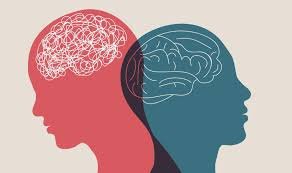I recently came across a tool that could help me identify the kind of personality type that I possessed. The tool is called the Myers-Briggs Temperament Indicator (MBTI), which Myers and Briggs developed based on the work of early twentieth-century Swiss psychiatrist Carl Jung. Personality typing refers to systems that categorize people based on their traits, tendencies, and other characteristics. Other types of personality tests include The Enneagram, The Five Love Language, The Big Five Personality Assessment, The Workplace Disc Test, Cattell’s 16 Personality Factor Questionnaire, etc. MBTI has within its components:
Extraversion (E) – Introversion (I)
Sensing (S) – Intuition (N)
Thinking (T) – Feeling (F)
Judging (J) – Perceiving (P)
Altogether, MBTI has sixteen different personality temperament types based on how people answer the questions about how they typically approach life on the four continuums stated above. The good news is that we can conveniently find our personality temperament type by identifying a combination of words that perfectly describe you within the MBTI components. Without reading further, I quickly identified my personality temperament type as INTP, which is a combination of Introversion, Intuition, Thinking, and Perceiving.
As an INTP, I identify as a thinker, quiet, highly introverted, analytical, and possessing a rich inner world. It means I usually spend a lot of time in solitude, thinking about how to make things better and proffering solutions to nagging societal problems. Another fun fact that is an absolute truth is that I do not have a wide social circle of friends, but I am highly selective with a few individuals whom I believe can impact my life positively.
My behavior and thought patterns are often based on logic and sound reasoning. For this reason, I am a “logician.” I value my intellectual participation in things that matter to me over my emotional outbursts or expressions. I am not a conventional thinker, but I like to think “outside of the box” by focusing on the big picture rather than the little details that cause distraction. I like to make audacious decisions, but I love to open my options wide when unsure. I hate the feeling of constraint or limitation caused by bureaucratic bottlenecks and structures. Interestingly, individuals who are INTP can fall under two main subtypes
• INTP – A: Known as the “Assertive Logician,” this subtype tends to be more comfortable and confident with themselves. They are also more satisfied with where they are in life. This is the subtype that best describes my personality temperament type leaning.
• INTP – T: This subtype is referred to as the “Turbulent Logician” and, compared to an INTP – A, feels less comfortable both personally and in terms of their current life. They also tend to be slightly less confident.
According to a study by psychologist David Keirsey, he argues that approximately one to five percent of people have an INTP personality temperament type, making it one of the rarest of all sixteen personality temperament types. Although I have always valued a time of solitude in my life, at times, it makes me feel guilty for being highly focused on my life goals and objectives. However, what I think I should do with this new knowledge is to find a balance between a solitary life and a collaborative effort with people, especially those who are important to me. I have commenced action on doing this to become a well-rounded individual. If you follow a similar path as I have chosen, your life will be highly enriching and impact-driven.
At the School of Transformational Leadership, you can participate in our Executive Wellness Leadership Program or our On-site Wellness Leadership Day Program and take a Personal Leadership Journey Program in a transformative roundtable conversation to become a certified climbing companion through our well-designed 20-hour leadership curriculum. My proudest moment would be seeing you become the transformed leader you are created to be. I am here to help you navigate the rugged terrain leading to your destination.
Contact us immediately to enroll in any of our programs; an enrollment specialist will work you through the registration process.
Editor’s Note: An excerpt from my soon-to-be-published book “Creed to Grace Therapy” by Olusegun Osineye.












